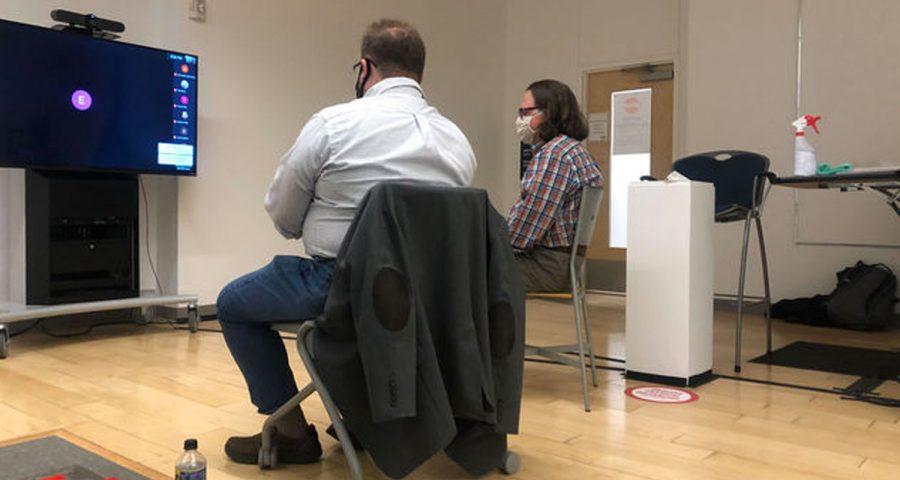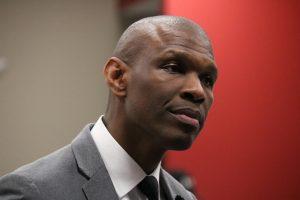RMU professors discuss communication styles in the 2020 presidential election
October 23, 2020
MOON TOWNSHIP — Dr. Soren Fanning and Dr. Anthony Moretti sat down in Wheatley’s atrium on Oct. 15 to discuss the communication styles and effects of the presidential and vice presidential debates.
Dr. Fanning, who specializes in World History and is an associate professor at Robert Morris University, and Dr. Moretti, a Communications professor, took questions from students and faculty. The two presenters held their discussion virtually, through a Google Hangout, and in person, in front of Moretti’s Communication Seminar class.
Before the discussion set in, the two professors sat there like two friends cracking jokes before they made a dive into the state of politics and news today.
The two professors discussed the communication themes and tactics used by both former Vice President Joe Biden, and current president Donald Trump and why they matter. They cited examples from presidents including Bush, Reagan and Nixon.
The effects of the first presidential debate saw these two in agreement with why there has been a trend of interrupting and undermining the rules of debates.
“Everyone wants that zinger,” Fanning confessed. “This lets candidates talk past each other and not answer any of the questions.”
When referring to these “zingers” Fanning was a debate that took place in 1980s where a debate candidate compared himself to John F. Kennedy. Lloyd Bentsen, a participant in the debate responded with a famous one liner; “I knew Jack Kennedy. He was a friend of mine. Senator, you’re no Jack Kennedy.”
Once the pre-set questions ended, it was up to the students who tuned in virtually to give the professors questions to answer. One student had asked about the 2020 debates as well as the two town hall meetings that had been held by both Biden and Trump.
These town hall meetings are where each candidate answers questions from the public. Former Vice President Joe Biden was on ABC and President Donald Trump was on NBC.
Dr. Moretti and Dr. Fanning shared the fear that the determination of who had won these town halls or who did better would be based, solely, on network ratings.
Another student asked whether or not debates will stay like this for this for future or if the debating process would return to how it was before.
Both professors agreed and assured the students that presidential debates will more than likely return to what they were because as they would say, “there’s only one Donald Trump.”
After the first negative response towards the first presidential debate, some students voiced a fear that the debates were no longer mattered. In this instance, Moretti and Fanning agreed with that idea. However, Moretti believed that another debate could change things if a “unforeseen health factor” would impact either of the candidates.
Another question that some people have is a sneaking fear that the characteristics of the candidates are being reflected onto the American people. Both professors had no doubt that the people are not reflecting the certain antics that the candidates choose to display.
They have a sense that, in general, people are not hostile and combat what Moretti called “this Trump thing.” The two also raised the point of how some Americans question how much of President Trump’s alleged antics are a performance and how much is actually genuine.
With discussions coming to a close, both professors shared their final thoughts and Dr. Moretti and Dr. Fanning addressed the class specifically and everyone with a heartfelt farewell with such a tough topic that evening.
“There’s no Bob Woodward today. There’s no Walter Cronkite today. There is no one with the authority today to say enough is enough,” said Fanning. “The good news is they might be in this room.”
“It’s not enough to say it’s good for ratings,” Moretti concluded. “At some point, you have to sacrifice some ratings to do what’s good for content. If it is good content, if you informed the public, you did your job.”















